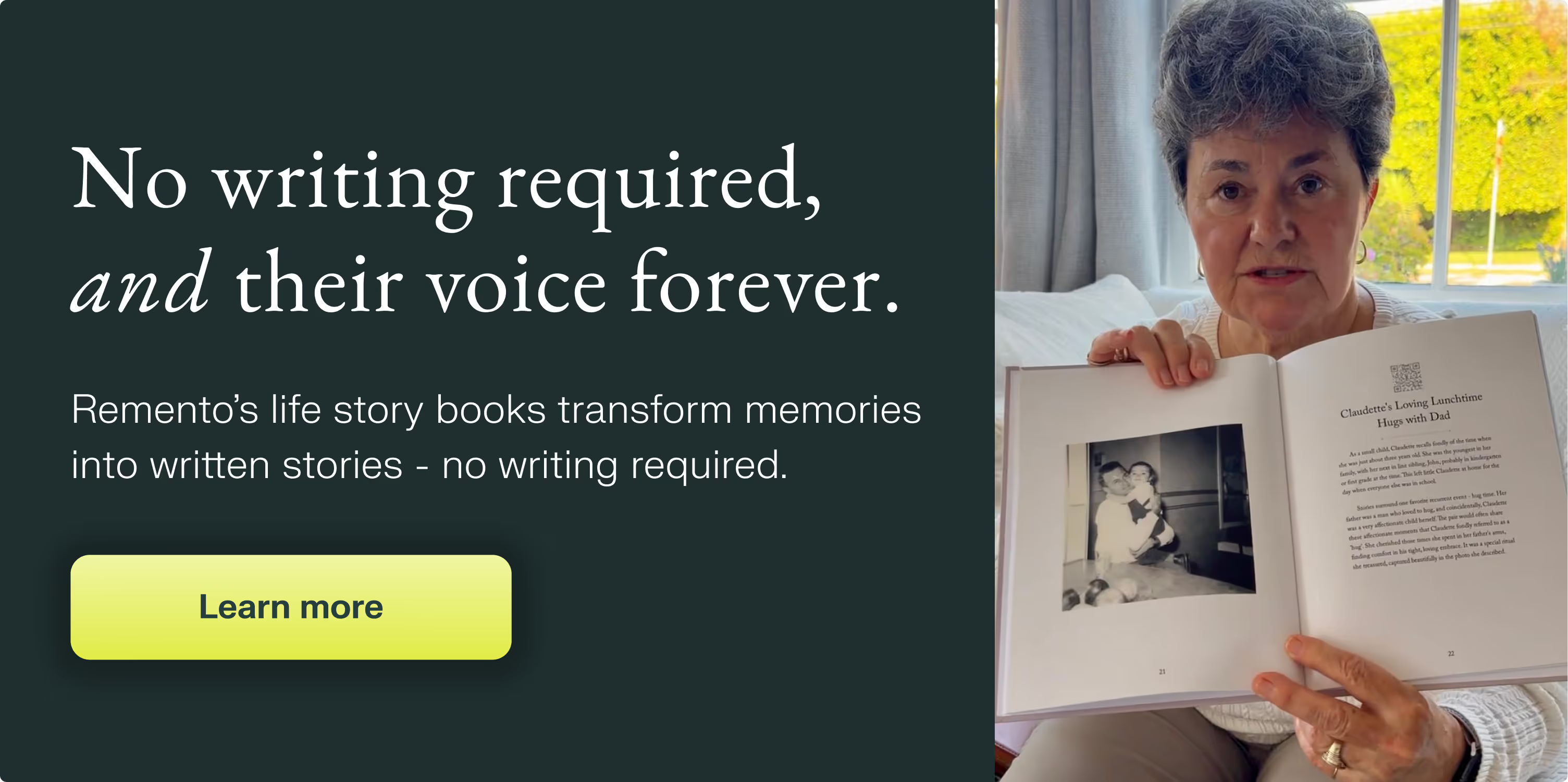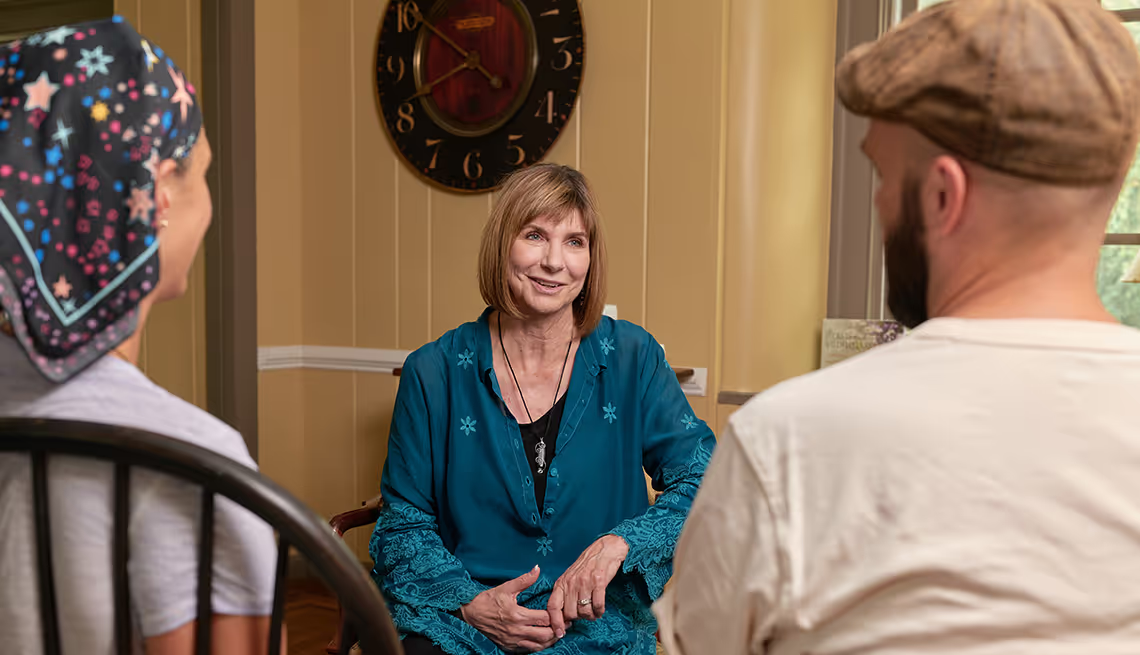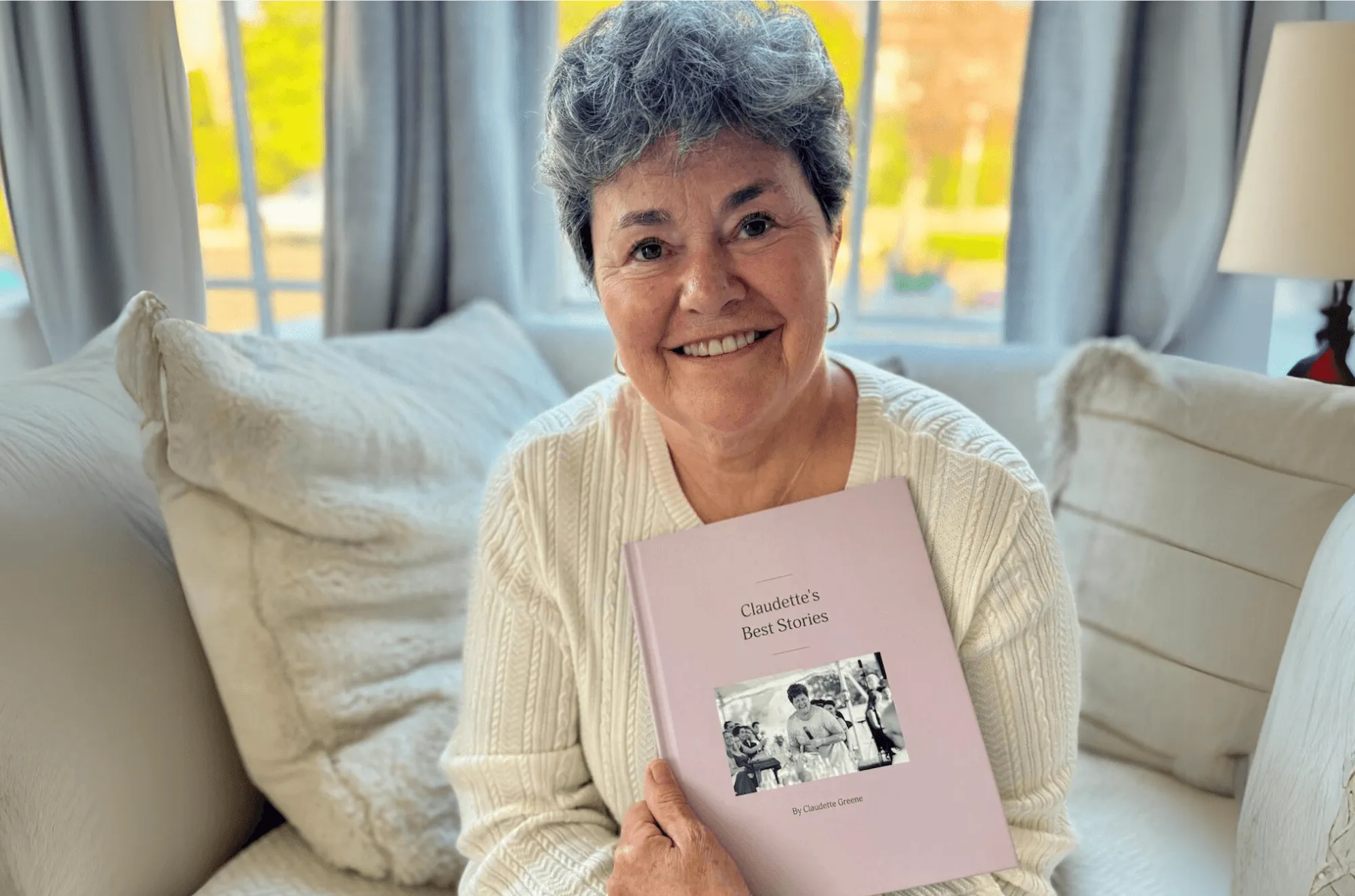Guaranteed to teach you things you never knew.
Unlocking the Power of Memories: A Comprehensive Guide to Life Review Therapy, Reminiscence Therapy, and Dignity Therapy
Discover how reminiscence, life review, and dignity therapies tap into the healing power of personal memories, offering pathways to improved mental health, well-being, and a sense of purpose, especially for those facing illness or nearing the end of life.
Introduction: The Healing Potential of Reflection
In the tapestry of human experience, our memories form the vibrant threads that weave together the story of our lives. As we age, face illness, or confront life's challenges, these memories can become powerful tools for healing, growth, and finding meaning. This is where memory-based therapies come into play, offering unique approaches to mental health and well-being that harness the power of our personal histories.
In this comprehensive guide, we'll explore three interrelated but distinct therapeutic approaches: Life Review Therapy, Reminiscence Therapy, and Dignity Therapy. Each of these methods taps into the rich reservoir of our memories and life experiences to promote psychological health, improve quality of life, and help individuals find peace and purpose, especially in their later years or when facing serious illnesses.
Whether you're a healthcare professional looking to expand your therapeutic toolkit, a caregiver seeking new ways to support your loved ones, or simply someone interested in the fascinating intersection of memory and mental health, this guide will provide you with valuable insights and practical information about these powerful therapeutic techniques.

What Is the Difference Between Reminiscence Therapy, Life Review Therapy, and Dignity Therapy?
While all three therapies involve reflecting on past experiences, they each have unique focuses, methodologies, and goals. Let's break down each therapy and then compare them.
What is reminiscence therapy?
Reminiscence therapy is a psychosocial intervention that involves the discussion of past activities, events, and experiences with another person or group, usually with the aid of tangible prompts such as photographs, familiar items from the past, music, or archive sound recordings. Reminiscence therapy is often used with older adults, particularly those with dementia, but it can be beneficial for people of all ages. It's typically conducted in a less structured manner compared to life review therapy, focusing more on pleasant memories and positive emotions.
The primary goals of reminiscence therapy are to:
- Improve mood and well-being
- Enhance social interaction and communication
- Stimulate memory and cognitive function
- Increase self-esteem and sense of personal identity
What is life review therapy?
Life review therapy is a more structured and comprehensive form of reminiscence. It involves a systematic review of life experiences, focusing on both positive and negative events, with the goal of integrating these experiences into a coherent life story. Life review therapy often involves guided autobiographical writing or storytelling, covering the entire lifespan from childhood to the present. It's typically more intensive and may involve more challenging emotional work than reminiscence therapy.
The main objectives of life review therapy are to:
- Resolve past conflicts
- Find meaning in one's life journey
- Achieve a sense of life satisfaction and ego integrity
- Reduce depression and anxiety
- Prepare for end-of-life transitions
What is dignity therapy?
Dignity therapy is a brief, individualized psychotherapy specifically designed for people nearing the end of life. It was developed by Dr. Harvey Max Chochinov and his colleagues to address the psychological and existential distress that often accompanies terminal illness. In dignity therapy, patients are invited to discuss aspects of their lives they feel are most important or meaningful. These conversations are recorded, transcribed, edited, and returned to the patient as a formal "generativity document" that can be shared with loved ones.
The primary aims of dignity therapy are to:
- Enhance the patient's sense of dignity and purpose
- Reduce psychological and existential distress
- Strengthen relationships with loved ones
- Create a lasting, meaningful legacy document
How do reminiscence therapy, life review therapy, and dignity therapy differ?
While these therapies share the common thread of reflection, they differ in their specific goals, structure, and target populations. Reminiscence therapy is often more casual and can be conducted in group settings, focusing on positive memories to improve mood and cognitive function. Life review therapy is more structured and comprehensive, addressing both positive and negative life experiences to promote personal growth and resolution. Dignity therapy is highly focused on individuals facing terminal illnesses, aiming to preserve their sense of self and leave a lasting legacy for their loved ones. More specifically:
- Focus:
- Reminiscence therapy often focuses on positive memories and experiences.
- Life review therapy encompasses both positive and negative life events, aiming for a balanced perspective.
- Dignity therapy focuses on what the individual feels is most important or meaningful in their life.
- Structure:
- Reminiscence therapy is often less structured and can be more spontaneous.
- Life review therapy follows a more structured approach, typically covering the entire lifespan.
- Dignity therapy follows a specific protocol developed by its creators.
- Duration:
- Reminiscence therapy can be ongoing and incorporated into daily care.
- Life review therapy often involves a series of sessions over several weeks or months.
- Dignity therapy is typically brief, often completed in 2-3 sessions.
- Target Population:
- Reminiscence therapy is often used with older adults, particularly those with dementia.
- Life review therapy can be beneficial for people of various ages facing life transitions or seeking personal growth.
- Dignity therapy is specifically designed for individuals nearing the end of life.
- Outcome:
- Reminiscence therapy aims to improve mood, cognitive function, and social interaction.
- Life review therapy seeks to achieve life satisfaction and resolve past conflicts.
- Dignity therapy results in a tangible legacy document for the patient and their loved ones.
Understanding these differences can help healthcare providers, patients, and families choose the most appropriate approach based on individual needs and circumstances.

Life Review Therapy for Specific Conditions
Life review therapy has shown promising results in treating various conditions. Let's explore how it can be beneficial for specific groups of patients.
Life Review Therapy for PTSD
Post-traumatic stress disorder (PTSD) can significantly impact an individual's quality of life. Life review therapy offers a safe space for individuals with PTSD to process traumatic experiences, identify strengths and coping mechanisms, and reframe their narratives. By examining their life story in a structured manner, patients can gain new perspectives on their experiences, reduce symptoms, and develop resilience.
The benefits of reminiscence therapy for hospice patients
For individuals in hospice care, reminiscence therapy can provide comfort, reduce anxiety, and improve overall quality of life. By focusing on positive memories and life achievements, hospice patients can find meaning in their lives, strengthen connections with loved ones, and experience a sense of closure. This therapeutic approach can also help alleviate depression and enhance emotional well-being during end-of-life care.
How reminiscence therapy can help Parkinson's patients
Parkinson's disease not only affects motor function but can also impact cognitive abilities and emotional well-being. Reminiscence therapy offers Parkinson's patients an opportunity to exercise their memory, enhance social interactions, and improve mood. By engaging in structured reminiscence activities, individuals with Parkinson's can maintain cognitive function, reduce feelings of isolation, and experience improved quality of life.
Reminiscence therapy for Alzheimer's patients
Alzheimer's disease presents unique challenges in memory retention and cognitive function. Reminiscence therapy can be particularly beneficial for Alzheimer's patients, as it taps into long-term memories that are often better preserved than short-term recall. This approach can help reduce agitation, improve communication, and foster a sense of identity and connection with loved ones.
How reminiscence therapy can help cancer patients
Cancer patients often face emotional and psychological challenges alongside their physical symptoms. Reminiscence therapy can provide a valuable coping mechanism, helping cancer patients focus on positive life experiences, build resilience, and find meaning during their treatment journey. This therapeutic approach can also improve mood, reduce anxiety, and enhance overall well-being for individuals battling cancer.

Dignity Therapy for Specific Conditions
Dignity therapy, with its focus on preserving self-worth and legacy, can be particularly beneficial for individuals facing various health challenges and life circumstances.
How life review therapy can help with depression and anxiety
Life review therapy offers a powerful tool for individuals struggling with depression and anxiety. By examining their life story, patients can identify patterns, strengths, and accomplishments they may have overlooked. This process can help reframe negative self-perceptions, boost self-esteem, and provide a sense of continuity and purpose, ultimately alleviating symptoms of depression and anxiety.
Helping those with chronic illness
Chronic illness can take a significant toll on an individual's mental and emotional well-being. Dignity therapy can help those with chronic conditions by affirming their value and worth beyond their illness. By creating a lasting document that captures their life story and wisdom, patients can find renewed purpose and leave a meaningful legacy for their loved ones.
How to use the therapy for grief and loss
Grief and loss can be overwhelming experiences that challenge one's sense of identity and purpose. Dignity therapy provides a structured approach to honoring the memory of loved ones while also affirming the value of the grieving individual's own life. This process can help individuals find meaning in their loss, preserve important memories, and navigate the complex emotions associated with grief.
How life review therapy can help dementia patients
For individuals with dementia, life review therapy can serve as a valuable tool for maintaining cognitive function and preserving personal identity. By engaging in structured reminiscence activities, dementia patients can strengthen neural connections, improve mood, and maintain a sense of self even as their condition progresses. This approach can also enhance communication with caregivers and loved ones, improving overall quality of life.

4 Example Reminiscence Therapy Activities
Reminiscence therapy can be implemented through various activities. Here are five examples that can be easily incorporated into care settings or daily life:
1. Using tools
Utilizing tools or objects from a person's past profession or hobbies can be a powerful way to trigger memories and promote discussion.
- How it works: Gather tools or objects related to the person's former occupation or favorite pastimes. Present these items to the individual and encourage them to handle and discuss them.
- Benefits: This activity can boost self-esteem by reminding the person of their skills and accomplishments. It also provides a tangible connection to their past.
- Example: For someone who worked as a carpenter, presenting woodworking tools can evoke memories of projects completed and skills mastered.
2. Capture stories
Encourage the individual to share stories from their past, focusing on significant events, achievements, or everyday experiences.
- How it works: Use prompts or questions to stimulate storytelling. These could be open-ended questions about different life stages or specific events.
- Benefits: Storytelling allows the individual to relive positive experiences, share wisdom, and maintain their sense of identity. It also promotes cognitive engagement and social interaction.
- Example: Ask about their first job, their wedding day, or a memorable vacation. Record these stories if possible, creating a lasting record for the individual and their family.

3. Photographs
Old photographs are excellent tools for evoking memories and promoting discussion.
- How it works: Gather a selection of photographs from different periods of the person's life. Look through them together, encouraging the individual to share the stories behind the images.
- Benefits: Photographs provide visual cues that can help trigger memories. This activity can improve mood, promote social interaction, and reinforce personal identity.
- Example: Create a photo album or digital slideshow of the person's life, including pictures of family, friends, important events, and favorite places.
4. Dancing
Music and movement can be powerful memory triggers, especially for individuals with dementia.
- How it works: Play music from the person's youth or young adulthood. Encourage them to move or dance to the music if they are physically able.
- Benefits: Dancing can improve mood, increase physical activity, and trigger memories associated with the music or the era it represents.
- Example: Organize a dance session with music from the 1950s or 1960s, depending on the individual's age. This could be a group activity in a care setting or a one-on-one activity at home.
5. Creating a memory box
A memory box is a collection of items that represent significant aspects of a person's life.
- How it works: Work with the individual to select items that are meaningful to them. These could include photographs, letters, small objects, or anything else that holds personal significance.
- Benefits: Creating a memory box can be a therapeutic process in itself. Once completed, the box serves as a tangible representation of the person's life story and can be used for ongoing reminiscence activities.
- Example: A memory box might include items like a wedding ring, a favorite book, a childhood toy, photographs of loved ones, or a souvenir from a memorable trip.
These activities can be adapted to suit individual preferences and abilities. The key is to create opportunities for individuals to connect with their past in meaningful ways, promoting cognitive engagement, emotional well-being, and social interaction.

20 Insightful Life Review Therapy Questions
Life review therapy often involves guided questions to help individuals reflect on their life experiences. Here are 20 insightful questions that can be used in life review therapy sessions:
- What is your earliest memory?
- Who were the most important people in your childhood, and why?
- What was school like for you? What subjects did you enjoy most?
- Can you describe a significant moment from your teenage years that shaped who you are today?
- What was your first job? How did it influence your career path?
- When did you first fall in love? What was that experience like for you?
- What has been your proudest accomplishment in life so far?
- Can you describe a time when you faced a significant challenge? How did you overcome it?
- What are some of the most important lessons you've learned in life?
- Who have been your greatest teachers or mentors, and what did you learn from them?
- What role has spirituality or religion played in your life?
- How have your values or beliefs changed over time?
- What has been your greatest adventure?
- If you could relive one day from your past, which would it be and why?
- What do you consider to be your greatest strength? How has it served you in life?
- Can you describe a mistake you've made that taught you an important lesson?
- What legacy would you like to leave behind?
- If you could give advice to your younger self, what would it be?
- What are you most grateful for in your life?
- How would you like to be remembered?
These questions are designed to encourage deep reflection and help individuals construct a meaningful narrative of their life experiences. It's important to approach these questions with sensitivity and allow individuals to explore their responses at their own pace.

Resources for Reminiscence Therapy and Life Review Therapy
Books
- "Remembering Yesterday, Caring Today: Reminiscence in Dementia Care" by Pam Schweitzer and Errollyn Bruce
- "The Therapeutic Potential of Creative Writing: Writing Myself" by Gillie Bolton
- "Dignity Therapy: Final Words for Final Days" by Harvey Max Chochinov
- "Reminiscence Theatre: Making Theatre from Memories" by Pam Schweitzer
These books offer in-depth insights into the theories, practices, and applications of reminiscence and life review therapies in various contexts.
Videos
- "Reminiscence Therapy in Dementia Care"
- "The Power of Dignity in Care" by Dr. Harvey Max Chochinov
- Doing a “Life Review” Can Help You to Find Happiness
A Take-Home Message
As we've explored in this comprehensive guide, Life Review Therapy, Reminiscence Therapy, and Dignity Therapy offer powerful tools for harnessing the healing potential of our memories and life experiences. These therapies provide unique approaches to addressing various mental health concerns, enhancing quality of life, and finding meaning, particularly for older adults and those facing serious illnesses. As research in this field continues to grow, we're likely to see even more applications and refinements of these therapeutic approaches. By understanding and applying these memory-based therapies, we can help individuals find healing, meaning, and dignity in their life stories, no matter their age or circumstances.
FAQ:
What is reminiscence therapy?
Reminiscence therapy is a psychosocial intervention that involves discussing past activities, events, and experiences with another person or group, often using prompts such as photographs, music, or familiar objects. It aims to improve mood, cognitive function, and social interaction, particularly in older adults.
What is life review therapy?
Life review therapy is a structured form of reminiscence that involves a systematic review of life experiences, focusing on both positive and negative events. Its goal is to help individuals integrate their life experiences into a coherent narrative, resolve past conflicts, and achieve a sense of life satisfaction.
What is dignity therapy?
Dignity therapy is a brief psychotherapy designed for people near the end of life. It aims to address psychological and existential distress by inviting patients to discuss aspects of their lives they feel are most important or meaningful. The result is a formal "generativity document" that can be shared with loved ones.
How effective is reminiscence therapy?
Research has shown reminiscence therapy to be effective in improving mood, cognitive function, and quality of life in various populations, particularly older adults and those with dementia. Its effectiveness can vary depending on the individual and how the therapy is implemented.
What is the purpose of life review therapy?
The primary purposes of life review therapy are to help individuals find meaning in their life journey, resolve past conflicts, achieve a sense of life satisfaction and ego integrity, reduce depression and anxiety, and prepare for end-of-life transitions.
Why is a Life Review important?
A Life Review is important because it allows individuals to reflect on their experiences, find meaning in their life journey, resolve unfinished business, and achieve a sense of closure. It can enhance self-understanding, improve relationships, and provide a sense of life satisfaction and peace, particularly for older adults or those facing serious illness.
Who should conduct a Life Review?
A Life Review can be conducted by trained mental health professionals such as psychologists, counselors, or social workers. In some cases, it may also be facilitated by trained chaplains or other healthcare professionals. The key is that the facilitator should have proper training in the technique and be skilled in active listening and empathetic communication.

Their stories, forever at your fingertips
Remento’s life story books turn a parent or grandparent’s memories of the past into a keepsake book for the future - no writing required.
Capture priceless family memories today
Join the thousands of families using Remento to preserve family history, all without writing a word.
.avif)
